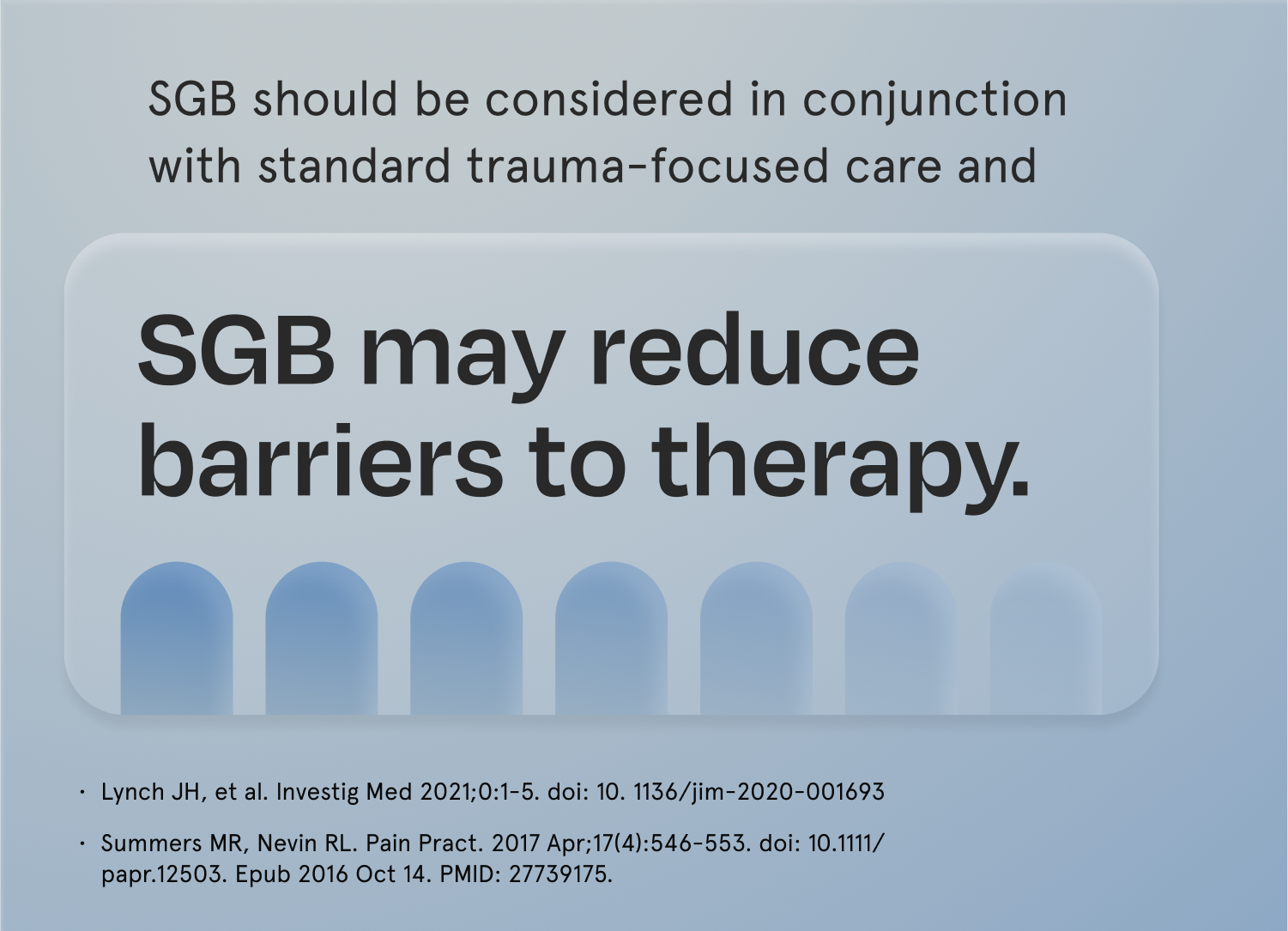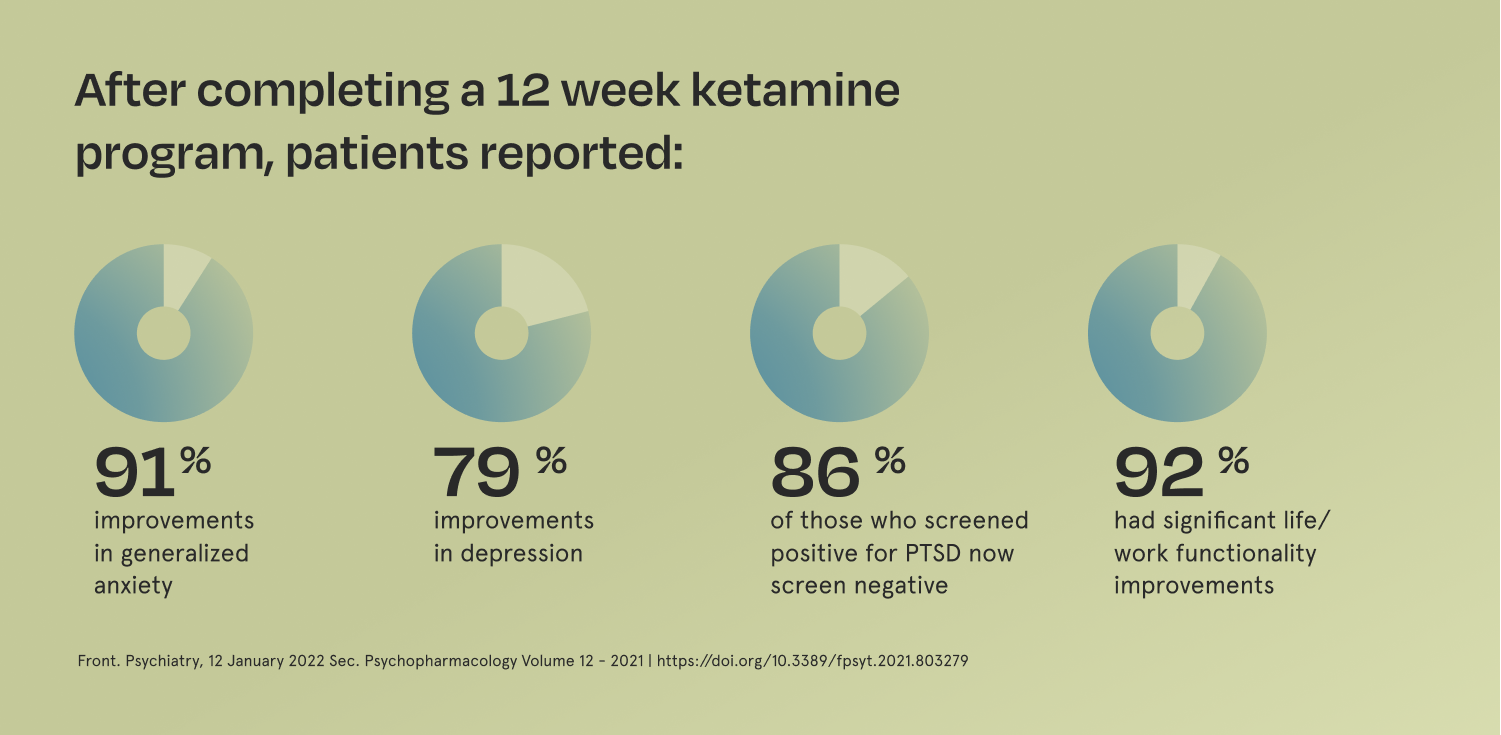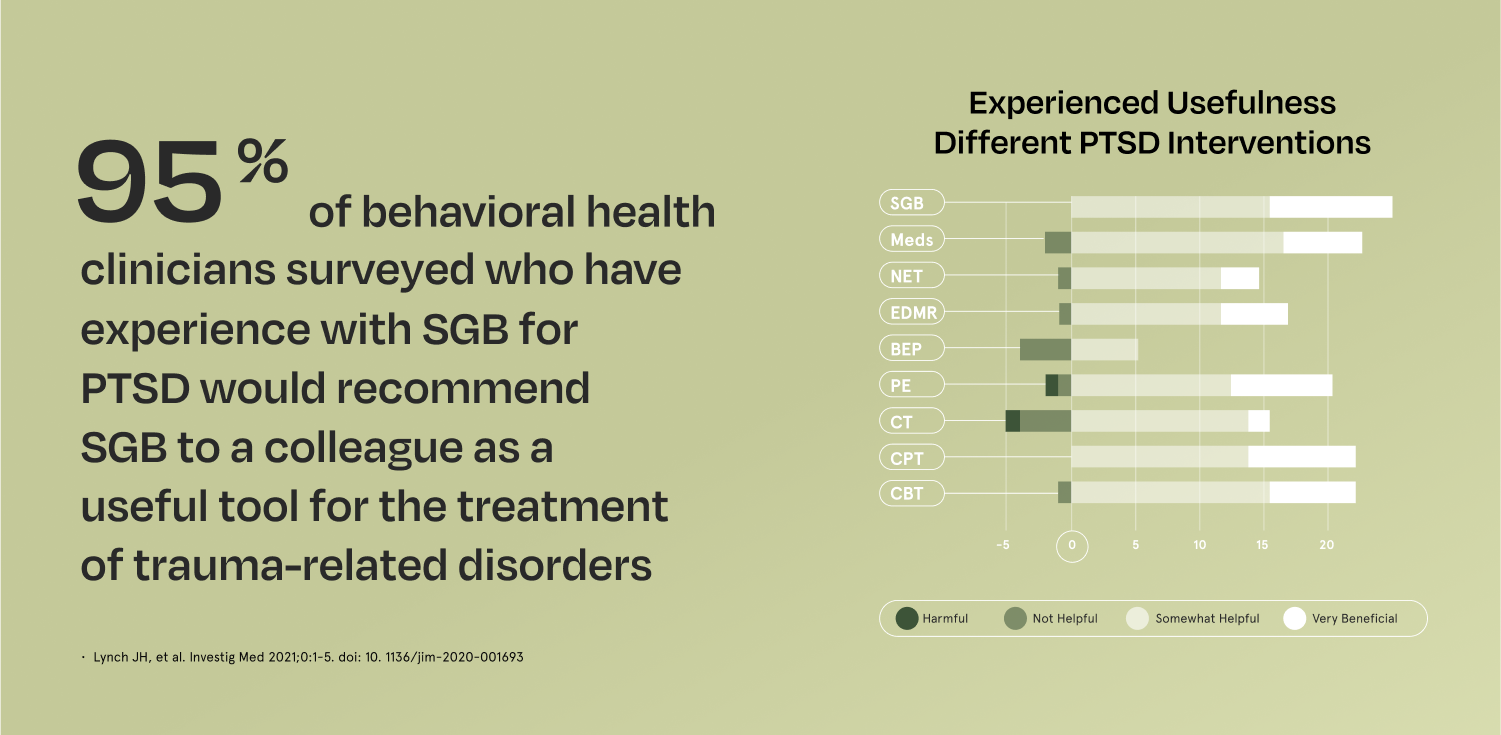Talk Therapy: What To Expect & What's To Come

If you think that you may be experiencing symptoms, take this PTSD test online or speak to a Care Advocate now directly by calling (908) 293-7559.
Talk therapy, as we know it today, was popularized by Sigmund Freud as "The Talking Cure" in the late 19th century. Psychotherapy has continued to evolve over the decades since, with new approaches and theories continually being developed and refined. Today, talk therapy is widely recognized as an effective treatment for various emotional trauma and mental health challenges and continues to be widely used.
At Stella, talk therapy is essential to a successful treatment plan. Psychological injuries don't just cause alterations in our biological functioning. They also change the way we think and behave, the way we relate to others, and how we see ourselves. Talk therapy is the arena for exploring these changes and setting ourselves on a new course.
In this article, we'll talk about the goals of therapy, the potential benefits of therapy, and Stella's approach.
First, let's explore the essential goals of talk therapy.
What are the Essential Goals of Talk Therapy?
There are countless types of talk therapy, many of which are effective in promoting healing. Mental health providers may have training in various types of therapy approaches and may recommend a specific type of talk therapy that is tailored to a particular type of emotional trauma and mental health challenge. Though there is no formal government approval process for psychotherapies, the National Institute of Mental Health (NIMH) says that research has shown that evidence-based talk therapies help relieve symptoms of anxiety, depression, and other mental health challenges and that mental health providers may use multiple types of research-backed talk therapy or exercises to help with healing.
Finding the right psychotherapist is crucial to healing, and it can take a few sessions to assess the goodness of fit with a particular therapist. Improving the quality of life is the most important aspect when it comes to healing, and finding the right fit is important. NIMH believes essential goals or elements for psychotherapists should be:
- Helping individuals recognize and challenge negative or harmful automatic thoughts we have about ourselves and our abilities, such as through a form of therapy called cognitive behavioral therapy (CBT).
- Teaching individuals how to manage stress and develop problem-solving skills.
- Assessing and improving a person's social interactions and communication abilities.
- Incorporating mindfulness and relaxation techniques like meditation and breathing exercises.
- Utilizing exposure therapy, a form of CBT, to gradually expose individuals to distressing situations or thoughts until their fear diminishes.
- Monitoring and understanding the connection between emotions and behaviors.
- Offering supportive counseling to address personal issues and provide emotional support.
- Creating a safety plan for individuals experiencing thoughts of self-harm or suicide, including recognizing warning signs and accessing appropriate support from friends, family, or emergency services.
To put this in even simpler terms, all successful therapies accomplish these core tasks:
- Build a solid working trust motivated towards shared growth goals for the patient
- Develop insights to help patients see the challenges we face in a new light
- Form effective plans to put insights into action in practical, valued ways
- Create long-lasting emotional, relationship, and identity shifts based on new experiences
Next, let's explore the potential benefits of talk therapy.
What are the benefits of talk therapy?
The benefits of talk therapy can vary from person to person and depend on several factors. In general, though, research has shown that talk therapy can improve mental health and well-being. The benefits often continue long after treatment has ended, and in some cases, the improvements can be permanent. Some of the most common benefits of talk therapy include improved mental health, reduced symptoms, increased self-awareness, coping skills, and emotional support. With the support of a skilled therapist, we may be able to:
- Overcome beliefs that keep one stuck
- Revitalize relationships with loved ones
- Deepen our bond with our children
- Develop better strategies for achieving work-life balance
- Learn how to rest, relax, and recharge oneself
- Find a better way to work with our boss or colleagues
Talk therapy requires commitment, and we don't often see the benefits right away. But over time, we begin to recognize the impact of the work we have put into ourselves in our daily routine, both big and small, like the ones mentioned above.
Stella's Approach to Talk Therapy
The first step to Treatment by Stella is working with one of our trauma-informed Advanced Practice Providers (APP). They are board-certified and licensed to assess, diagnose, and treat mental health challenges. Our clinical leaders do not do talk therapy sessions with Stella patients yet they are qualified to identify if individuals may benefit from talk therapy and make a referral, and are uniquely knowledgeable about the most innovative biological treatments, including the Dual Sympathetic Reset, an advanced form of Stellate Ganglion Block, and Ketamine Treatment Sessions.
APPs understand that these two biological treatments need different kinds of support on the talk therapy side. For example, when our patients have a successful Dual Sympathetic Reset, they may experience a range of new emotions. For this reason, we've developed therapeutic approaches to help our patients understand how to navigate new emotions.
Sometimes, patients may experience feelings of grief following a successful DSR SGB. This grief often represents latent grief that has been present for many years but has been unaddressed.
How Stella pairs therapy with Dual Sympathetic Reset (DSR)
Stella's Dual Sympathetic Reset protocol provides people with the opportunity to benefit from treatment without the barrier of fighting through symptoms like difficulties concentrating and overwhelming surges of anxiety. When calm is restored in the body, patients can be fully present in therapy.
Stella's goal is to provide the best possible outcome by using a flexible, tailored approach to care. Some Stella patients may benefit from receiving therapy in a group format. To facilitate this possibility, Stella has teamed up with All Points North (APN) to develop a curriculum that is designed to pair with Stella's DSR SGB. APN providers are equipped to guide our patients through a series of insights about how to grieve in a healthy way.

Based on common clinical focus areas among Stella patients, Chief Psychologist Dr. Shauna Springer has developed a number of insight-driven content areas that can be integrated into post-DSR SGB sessions for Stella patients on topics like:
- Working with new emotions
- Overcoming abandonment trauma
- Approaching grief and loss
- Confronting shame
- Taking back our life after trauma
- Becoming assertive without being aggressive
- Getting better sleep
- Mindfulness
- Breathing for daily self-regulation
- Breathing techniques for managing breakthrough anxiety
Stella x APN's Trauma-Informed Talk Therapy Curriculum can include 4 to 8 individual therapy sessions following biological treatment. Alternatively, patients can opt to be followed for a long-term course of therapy with one of the therapists within APN.
How Stella pairs therapy with Ketamine
Ketamine works in a different way than DSR SGB. Ketamine is an NMDA receptor antagonist that has psychedelic properties which can facilitate therapeutic breakthroughs. The term "psychedelic" comes from root words that can be translated as "to reveal" (delic) the "psyche" (psyche). In other words, when Ketamine is used to address symptoms of trauma, anxiety, depression, and other life challenges, the medication can help reveal the psychological landscape of our minds.
Ketamine can also decrease the body's biological fear response and helps us make new connections between our emotions and our experiences. In this way, a ketamine treatment session can bring us new insights and help us to see the challenges we face in a new light. Just as EMDR therapists see the mind as inherently adaptive, the mind is thought to actively create new perceptions and beliefs that will help us to heal.
Stella offers Integration Sessions as a part of its ketamine treatment plans. While Stella Integration Sessions aren't considered therapy, they can support patients on their treatment journey and are designed to maximize the benefits of Stella's biological treatments in a way that adds value for patients who choose to pursue long-term therapy outside of Stella
To maximize the therapeutic value of Ketamine, Stella helps patients capture the value of these sessions through three primary strategies:
- Capturing the content of Ketamine Treatment Sessions
- Making meaning of the content that is revealed during these sessions
- Developing a specific plan of action to put insights into action
Supporting these three elements gives Stella patients the best opportunity to turn key insights into long-lasting healing and growth.
Stella offers integration sessions as a part of its ketamine treatment plans. Patients are scheduled to meet with a Stella provider on the day following their ketamine medicine session. These sessions are 45 minutes in length and are designed to be short-term in nature. Patients will have the opportunity to participate in one Stella Integration Session for each ketamine medication session they complete through Stella.
The integration sessions that Stella offers are designed to maximize the benefits of Stella's biological treatments in a way that adds value for patients who choose to pursue long-term therapy outside of Stella, whether through a Stella therapy provider like APN or with a trusted therapist they have been seeing prior to entering Stella care. We respect these therapeutic relationships and encourage patients to pursue longer-term therapeutic interventions if individuals find these helpful for maintaining the gains from treatment plans.

The Future of Talk Therapy
As the field of mental health care evolves, we continue to develop and refine talk therapy support. The emergence of new treatment modalities will help shape the future of talk therapy and allow for a variety of increasingly diversified paths to healing. As new biological treatments become available in time, each of these will require a thoughtful form of paired talk therapy support.
Stella will continue to build content, approaches, and resources that can equip patients with new skills using a variety of methods and drive innovation without losing the central emphasis we place on human connection, building and holding trust in a therapeutic relationship, and delivering talk therapy in a flexible, personalized way.
Stella is a leader in treating emotional trauma, mental health challenges, and long COVID symptoms with innovative treatments like the Dual Sympathetic Reset (DSR), an advanced Stellate Ganglion Block (SGB), and Ketamine Treatment Sessions. If you want to find out more information about treatment with DSR SGB, please speak to our care advocate by calling 908-293-7559.
